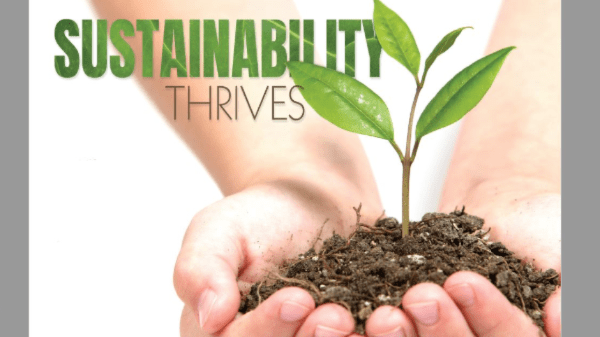Planet and people are also closely linked.
Gretchen Kreidler Austin, director of marketing and business development for SunFed, BB #:150037 Nogales, AZ, says that eliminating chemical inputs contributes to worker well-being.
“In the late 1990s, with the help of Carlos Bernal, a well-respected agronomist and pioneer of organic agriculture, we began taking steps toward making our growing operations sustainable.
“We worked together to implement integrated pest-management programs, a proactive approach to eliminate chemical pesticides and fertilizers. Apart from eliminating chemical inputs, we provided a healthier environment for our workers and surrounding neighborhoods.
James Martin of Wilson Produce, LLC, BB #:206396 Nogales, AZ, offers these observations about Wilson Produce: “At our own farms, we practice regenerative organic agriculture, and much of that involves developing systems to reduce our dependence on external commercial inputs.
“Some examples would include composting of on-farm plant material, the use of cover crops, companion crops, green walls and insect banks to support beneficial insects and pollinators, and a participatory plant breeding program to develop . . . varieties more suitable for organic production.”
Energy savings
As for energy consumption, SunFed’s Austin explains, “We are no longer the same company that started over 25 years ago in a 12-by-16-foot office space, and our energy needs have changed as well. Our home offices and two cold storage facilities are found on the SunFed campus in Rio Rico, AZ. With a combined refrigerated space of approximately 65,000 square feet, we needed to do something to offset our environmental impact.
“In 2011, we began researching our options for an alternative energy solution. Finally settling on photovoltaic solar in July of 2013, we commissioned the largest commercial solar project in southern Arizona (418 kilowatt hours or kWh) on the roof of our main distribution facility.
At Wilson Produce, Martin says, “Management of the cold chain from harvest to sale helps to cut energy consumption. But we also have one of the largest solar PV [photovoltaic] systems within our county, where we produce more kilowatt hours than we consume. At the farm level, processes as seemingly minor as keeping harvested fruits and vegetables out of direct sunlight to getting those products into our cold chain quickly and efficiently are also ways of cutting energy consumption.”
Olga Borquez, sustainability manager for Wholesum Family Farms, Inc., BB #:135847 in Nogales, AZ, estimates the company is now getting 40 percent of its energy from renewable sources in areas ranging from packaging to fertilizers to using natural gas. Wholesum is also looking at the impact of its transportation practices, asking questions like, “How many truckloads are we sending? How many of them are full?”
Reducing waste
Waste is a key factor in sustainability.
At Wholesum, Borquez says, “We’re measuring the percentage of renewable versus the nonrenewable inputs we’re using. Where can we switch consumption?” Or with plastic packaging, “where would it make sense to switch to renewable?”
Waste has also been a major interest at SunFed. In 2000, the company began to work with StePac, an Israeli company, on this goal.
Austin says, “We adopted their breakthrough films for fresh produce in the form of modified atmosphere/modified humidity (MA/MH) bags. We worked to find and perfect the optimal film combinations for each product. With this technology, we were able to almost eliminate shrink (or waste).”
Water input and output
At Wilson Produce, “our greatest water use is at the farm level,” says Martin. “For water conservation, we focus on building organic matter within our soils to reduce runoff and increase infiltration. Sometimes there are tradeoffs here, like irrigating cover crops between production cycles.”
SunFed’s Austin says, “In Arizona, water conservation is always a factor of life. Our facility does not water plants or have a lawn. We installed low-flow toilets and waterless urinals, as well as low-flow water faucets and spigots.”
Wholesum is not only looking at water inputs—that is, consumption—but outputs. Borquez poses these questions that the company has been asking: “Where are you disposing of it? How? What’s the quality of the water you’re disposing?”
This is multi-part feature on sustainability adapted from the Nogales supplement in the January/February 2020 issue of Produce Blueprints.



